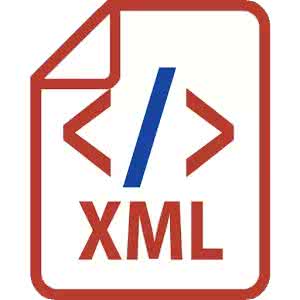One of the main purposes of a computer is automation. In fact, automation is the technology by which a manual task is performed with minimum or zero human assistance. Over the years, automation has proved to reduce operation cost and maintenance time in addition to increase system productivity, reliability, and performance. Today, most computerized automation are done by a computer program which is a set of instructions executed from within the computer memory by the computer central processing unit to control the computers various operations. This paper proposes a compiler program that automates the validation and translation of input documents written in the Arabic language into XML output files that can be read by a computer. The input document is by nature unstructured and in plain-text as it is written by people manually; while, the generated output is a structured machine-readable XML file. The proposed compiler program is actually a part of a bigger project related to digital government and is meant to automate the processing and archiving of juridical data and documents. In essence, the proposed compiler program is composed of a scanner, a parser, and a code generator. Experiments showed that such automation practices could prove to be a starting point for a future digital government platform for the Lebanese government. As further research, other types of juridical documents are to be investigated, mainly those that require error detection and correction.
翻译:计算机的主要目的之一是自动化。事实上,自动化是人工任务以最低限度或零人力协助完成的技术。多年来,自动化证明除了提高系统生产率、可靠性和性能之外,还减少了操作成本和维护时间。如今,大多数计算机自动化程序是由计算机中央处理股从计算机存储中执行的一套指令,用于控制计算机的各种操作。本文件提出了一个编译程序,将阿拉伯语言的输入文件的验证和翻译自动化到可由计算机阅读的XML输出文件。输入文件是自然的,没有结构的,是纯文本的,因为是由人手写的;而生成的产出是结构化机器可读的XMML文件。拟议的编译程序实际上是与数字政府有关的更大项目的一部分,目的是将司法数据和文件的处理和归档自动化。实质上,拟议的编译程序是由扫描器、读取器和代码生成器组成的。实验表明,这种自动化做法可以证明是未来数字政府测算器的起点,主要是黎巴嫩政府需要进行其他类型的司法调查。





